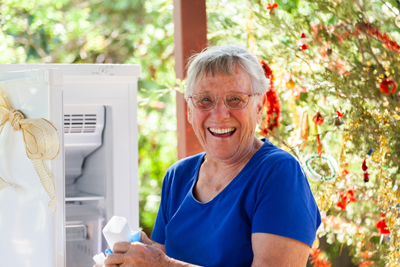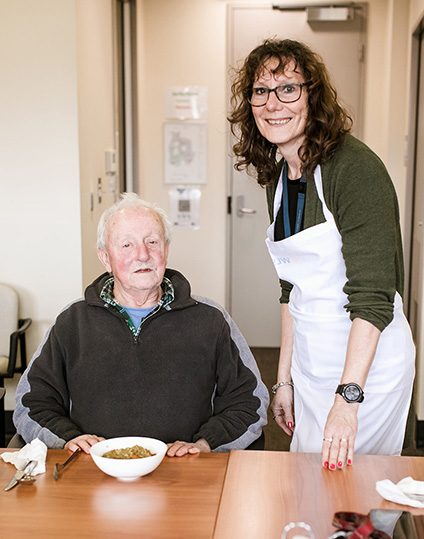Celebrating Christmas with your family is often a homecoming. Even as an adult, there’s something nice about sharing Christmas with your parents.
But as special as your family reunion will be at Christmas time, it may also be a surprise if you notice your parents are slowing down.
It can be easy to disregard your parents’ forgetfulness or the state of their house while you’re busy celebrating with family. But if you know what to look for, there are often signs – some subtle and some clear – that your parents might need some extra help to stay living well at home.
Here’s what to look for, and how to respond.
Seven signs your parents might need help at home
Noticeable weight loss, poor personal hygiene and a general unkempt appearance (unironed clothes, unshaven face or un-brushed hair) are tell-tale signs your parents are struggling. Getting in and out of the shower, doing the laundry or preparing meals might have become too physically demanding for them. Look out for noticeable bruises on arms and legs, as these can signal trips and falls.
Loose towel rails or ripped shower curtains can indicate your parents are using these bathroom fixtures as a support to hoist themselves up, or prevent themselves from falling. An occupational therapy assessment can determine whether bathroom modifications are needed to keep your parents safe.
Piles of dirty laundry, overgrown lawns and gardens, dirty windows and a build-up of dust and clutter can be red flags, especially if your parents are usually house-proud. Again, day-to-day tasks like housekeeping might have become too physically challenging for your parents.
If your parents’ memory or eyesight has deteriorated, once simple tasks like collecting the mail or paying bills can become a burden. It might be worth setting up auto-payments to avoid electricity and water getting switched off.
Carrying groceries, getting to the supermarket or remembering to ‘click and collect’ may have become too much. Perhaps your parents don’t have the energy to prepare nutritious meals, or they’ve burnt or cut themselves cooking dinner before and are afraid of hurting themselves again. Ask your parents how often they go grocery shopping (or get groceries delivered) and whether they’re still cooking their favourite meals. This might prompt them to ask for help.
If your parents are no longer legally allowed to drive, or they don’t feel comfortable sitting behind the wheel, it can be much harder for them to attend appointments or stay connected with their community, which is key to mental wellbeing.
Now that things are opening up again, ask your parents how they feel about heading into town. Can they still drive? Can they take public transport, ask family and friends for a lift, or join local planned activity groups with transport provided? These are all options that are worth talking about.
If your parents have been active members of the Lions’, bridge, bowls, craft or golf club, are they still going? Have they caught up for coffee and cake with their closest friends? Are they going on their usual outings?
If your parents don’t seem interested in leaving the house, it might be time for a candid conversation. Maintaining social connections is really important for all of us, so it’s worth talking about how your parents can do that in a safe and meaningful way.
I’m concerned about my parents’ wellbeing. What can I do to help?
If you’ve noticed any of the above changes in your parents, it might be time to raise your concerns with them and look at what help is available.
- If you have siblings who have visited or phoned your parents recently, talk with them first. Swapping notes may help build a fuller picture of how your parents are coping.
- Do some research. The official guide to home help is the Australian Government website myagedcare.gov.au. This provides useful information on how the government funds in-home care services. If you decide to proceed with some help for your parents, you will need register them there. But…
- …it can also be a daunting website to navigate. Another option is to have a chat with someone who can give you some easy-to-understand advice. That’s where we can help. Latrobe Community Health Service has been providing in-home care services for more than 20 years, and we know Australia’s aged care system inside-out. If you would like a general chat about options for you and your parents, give us a call on 1800 242 696 (or request a call back).
As confronting as it can be to realise mum or dad is slowing down, it’s not all doom and gloom. There are plenty of options for home help, and there’s no reason your parents can’t thrive at home for years to come. If you’d like to read more about home care packages, you can view our complete guide.
Need friendly, easy-to-understand advice on home care for your parents?
Fill out this form, and we’ll give you a call at the time you nominate.




